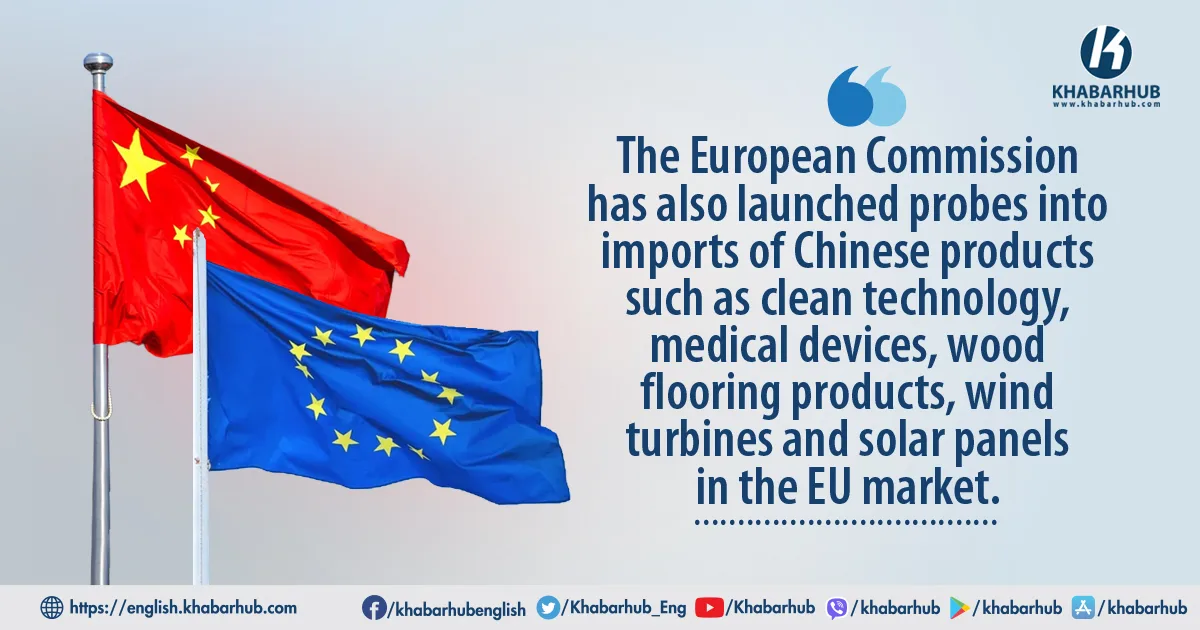Days after President Xi Jinping undertook his first trip to Europe in five years to try and mend China’s economic relations with the West, French Finance Minister Bruno Le Marie attacked Beijing for overflooding the world and the European Union market with cheap Chinese goods.
“We have an issue with the economic model in which China is producing more and more cheaper industrial devices because it could be a threat not only for the EU, not only for the US, but for the world economy,” Le Maire said in an interview with Bloomberg Television on May 27.
It was not the first time when the French Finance Minister sounded categorically vocal against China.
In his opening remarks at the three-day G7 Finance Ministers and Central Bank Governors’ meet, which was held in Stresa, Italy on May 23-25, Le Marie called on member countries on the need to strengthen the information exchange system and undertake a common assessment of China’s industrial practices.
According to the United Nations Industrial Development Organisation, China produces a third of the world’s manufactured goods, more than the US, Germany, Japan, and South Korea combined.
“Don’t make any mistake about the determination of the EU countries and the French determination,” the French Finance Minister was quoted by the Japan Times as saying.
Significantly G7 Finance Ministers backed Le Maire’s call for united fight against China’s “non-market policies and practices,” stating that such activities undermine workers, industries, and the economic resilience of G7 members.
It spoke volumes of resentment among Western countries against China which has flooded the EU and Western markets with cheap Chinese goods like wood flooring products, wind turbines, solar panels, electric vehicles, steel products, clean technology, and others.
On May 16, the European Commission launched an anti-dumping probe into Chinese flat-rolled products of iron.
As per Reuters, the probe was launched following a complaint from European Steel Association, EUROFER.
In its complaint filed with the European Commission, EUROFER wrote, “Chinese mills have been flooding the EU market for at least the past four years with their overcapacities of tinplate at dumped price, putting immense pressure on EU producers that were forced to reduce their prices regardless of the evolution of costs.”
On the other hand, the European Commission is about to complete its investigation into subsidies provided by Beijing on electric vehicles manufactured in the East Asian country.
In October 2023, the European Commission launched a formal investigation into the imports of electric vehicles from China.
This step was taken after European Commission President Ursula Von der Leyen told the European Parliament last year that, “global markets are now flooded with cheaper Chinese electric cars and their price is kept artificially low by huge state subsidies. This is distorting our market.”
According to the European Federation for Transport and Environment report, about 19.5% of battery-powered electric vehicles sold in the European Union in 2023 were from China.
The share of China made electric vehicles in the EU is expected to rise over 25% in 2024, said the European Federation for Transport and Environment report.
The European Commission has also launched probes into imports of Chinese products such as clean technology, medical devices, wood flooring products, wind turbines and solar panels in the EU market.
Experts said such steps are essential to end the menace of China dumping cheap goods in the Western market.
It was the first time when the US under the Joe Biden administration proposed imposition of hefty tariffs on imports of Chinese steel and aluminium into the American market.
“Once the exporters start to compete unfairly—and unfairly is the key word here—cheap imports will eat away the market share of European companies that provide jobs, taxes, and local know-how. And, once the local industry is eliminated, there is nothing to stop the monopoly supplier from jacking up prices,” Politico, a US-based politics-focussed digital newspaper, said.
According to the United Nations Industrial Development Organisation, China produces a third of the world’s manufactured goods, more than the US, Germany, Japan, and South Korea combined.
However, the EU, which faced a trade deficit of nearly 300 billion euro with China last year, is not prepared to go along with the present status quo in its engagement with China.
French Finance Minister Le Maire’s statement to Bloomberg Television that the entire world economy is at risk from a glut of cheap Chinese exports—is a clear indication about growing discomfort of some European countries with China on the trade and investment front.
The EU is also worried about Chinese companies’ use of subterfuge means to avoid tariffs on its products in Europe and other international places.
In fact, several Chinese companies use countries like Vietnam, Malaysia, and Mexico to process their goods.
After these products are processed, these countries export them to the US, Europe, and other markets in the world.
It is done so to make these products be counted as ones being produced by Vietnam, Malaysia, and Mexico and bypass tariffs.
Chinese goods attract tariffs in Europe, the US, and other international markets, while products from Vietnam, Malaysia and Mexico attract low tariffs or even no tariffs in Europe or the US.
Despite this, the EU is still mulling over rules of origin tariffs, but the US is gearing up to further tighten the noose around China’s neck over trade and commerce matters.
President Joe Biden is likely to reimpose tariffs on hundreds of goods imported from the East Asian country.
In fact, the US wants to rein in surging exports from China at any cost as it fears they are threatening American jobs and businesses.
On April 17, worried by China’s continued dumping of steel and aluminium in the American market, President Joe Biden called on the US Trade Representative (USTR) to consider tripling the tariff on supply of these products from China.
“The notion that China’s overcapacity harms the global market is a complete fallacy. Those who spread that narrative to justify protectionism have nothing to gain from it and will only destabilize and disrupt industrial and supply chains,” China’s Foreign Ministry Spokesperson Lin Jian said.
It was the first time when the US under the Joe Biden administration proposed imposition of hefty tariffs on imports of Chinese steel and aluminium into the American market.
In fact, the Joe administration has largely continued with all the tariffs initially levied under the Donald Trump administration against Chinese imports in the US. Presently, the average tariff in the US on certain steel and aluminium products is 7.5%.
In March 2024, China’s steel exports to the US jumped 25.3% to 9.89 million compared to March 2023, while its exports of unwrought aluminium and aluminium products to the US totalled around 510,000 tons—a year-on-year increase of 3.1%, data from China’s General Administration of Customs showed.
According to the Council on Foreign Relations, an American think tank specializing in US foreign policy and international relations, China’s surplus in goods trade has more than doubled since the pandemic.
In 2019, the East Asian country exported an estimated $400 billion more in goods than it imported. In 2023, its exports ballooned to $900 billion and this year, they are expected to soar beyond $1 trillion.
Yet China defends its approach in trade and commerce, saying those who say Beijing is dumping its products in the global market, are only justifying “protectionism.”
“The notion that China’s overcapacity harms the global market is a complete fallacy. Those who spread that narrative to justify protectionism have nothing to gain from it and will only destabilize and disrupt industrial and supply chains,” China’s Foreign Ministry Spokesperson Lin Jian said.









Comment